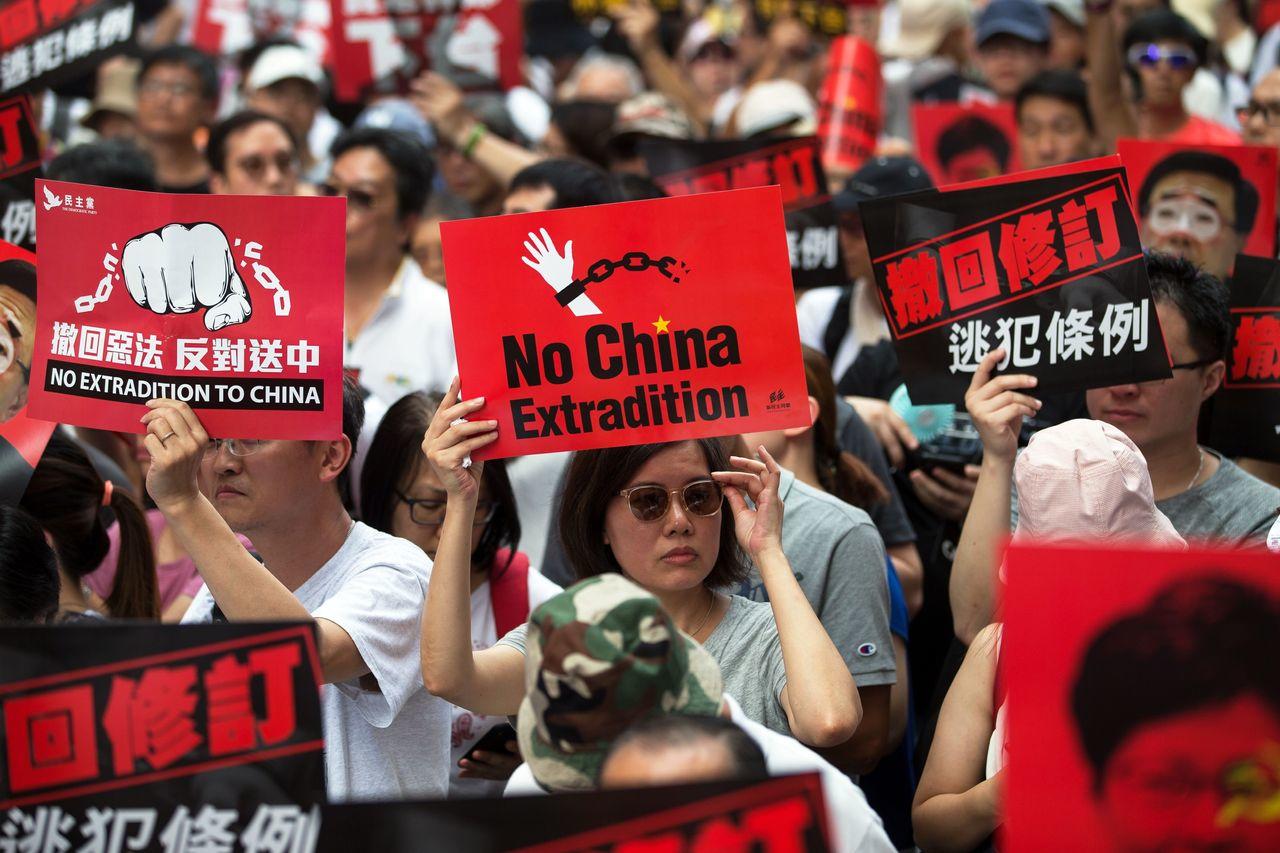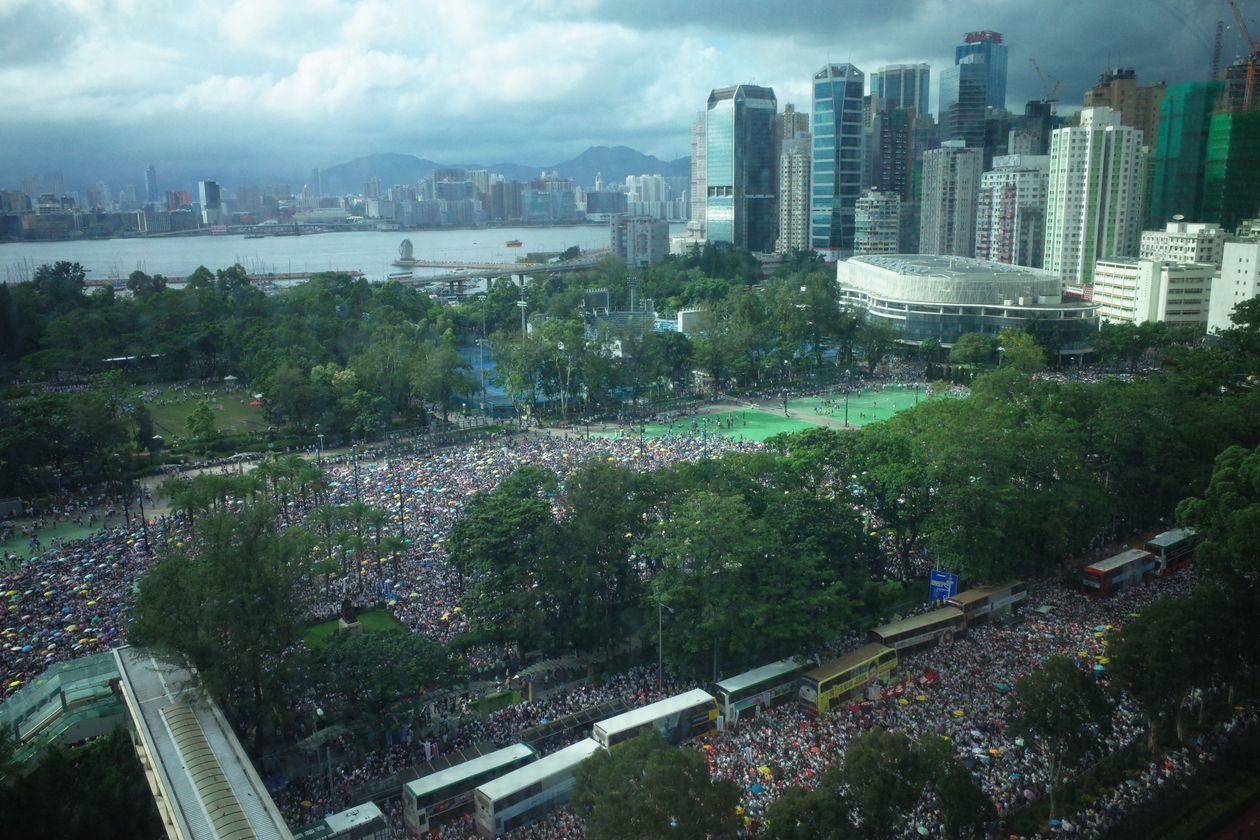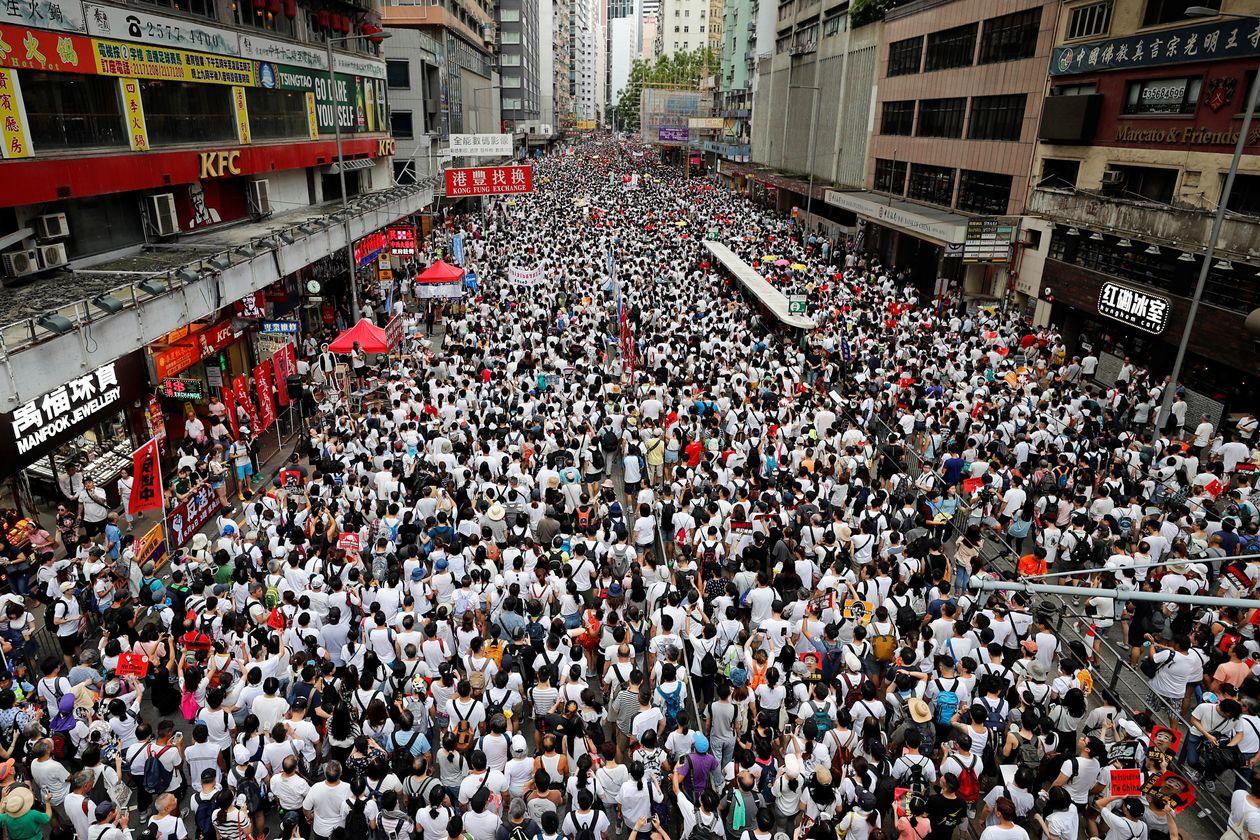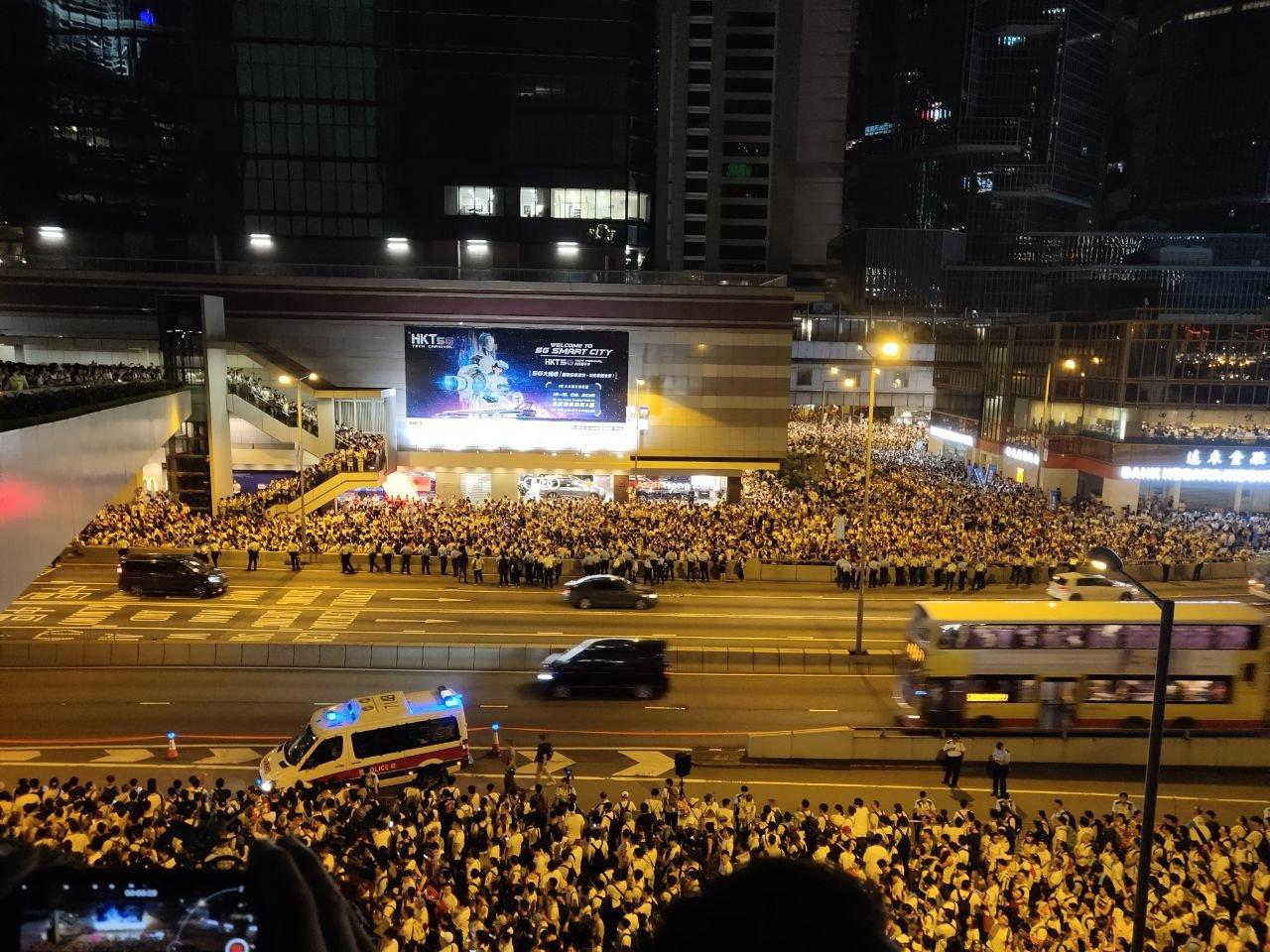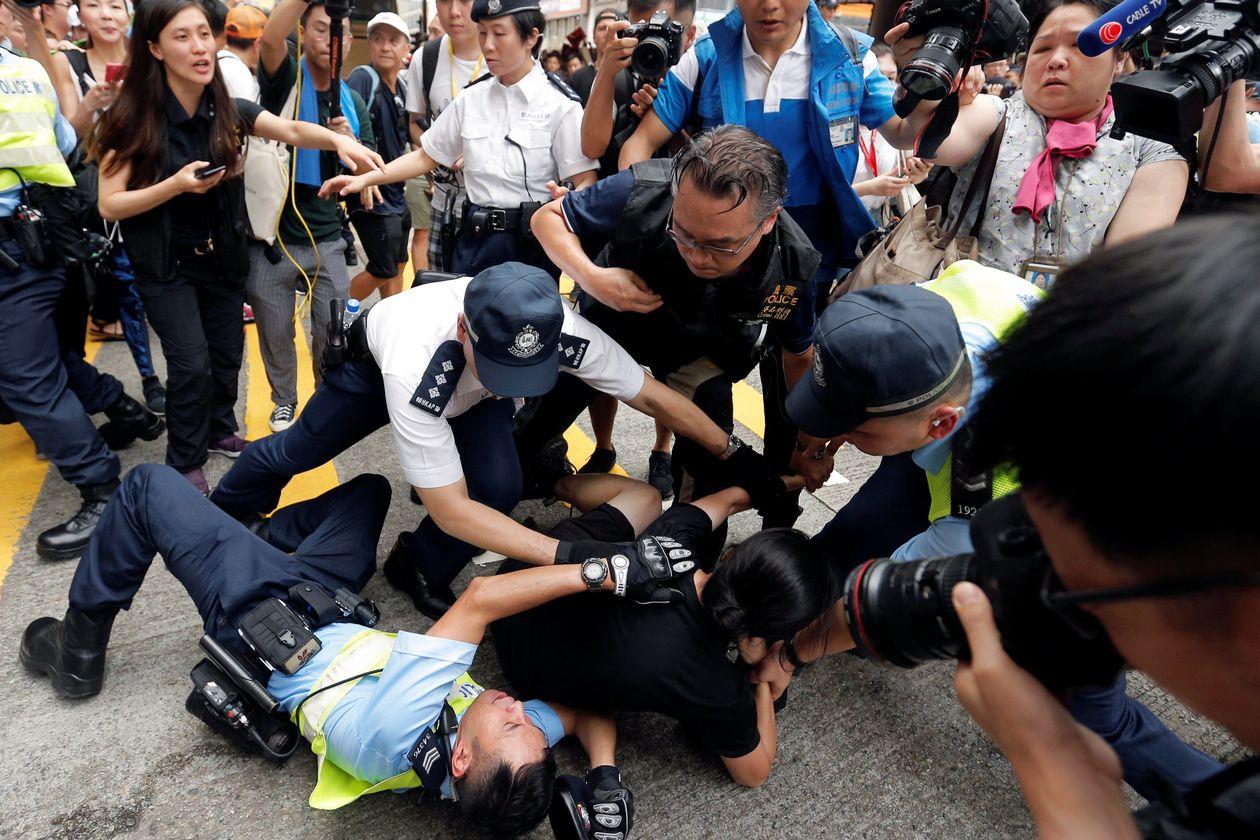Over 1 million Hong-kongers (according to the organizers; 240K according to the police), or one in seven, flooded Hong Kong’s streets on Sunday to oppose a proposed extradition bill that would allow Beijing to take people from Hong Kong to stand trial in mainland China.
Time lapse video shared online on how hundreds of thousands marched to protest against an extradition bill #extraditionbill in Hong Kong pic.twitter.com/hOps5KF5VC
— Stella Lee (@StellaLeeHKnews) June 9, 2019
According to the SCMP, it was the most unified protest march in the city in more than a decade, with some calling it the ultimate showdown over the bill, which goes to a vote on June 12 and if passed would allow the transfer of fugitives to jurisdictions.
If turnout numbers are accurate, it would represent the biggest protest since 2003, when 500,000 people demonstrated against national security legislation that was later withdrawn by the government. The sea of marchers set off from Victoria Park just before 3pm and streets in nearby Causeway Bay were soon brought to a standstill as protesters clad in white chanted and sang songs as they walked in the oppressive heat, according to the SCMP.
Tensions escalated in recent weeks as Hongkongers from all walks of life have spoken out against the proposal. Petitions against the bill have circulated, thousands of lawyers staged a silent march and several chambers of commerce have voiced concerns. The bill’s proponents, mostly the city’s administration, see it as vital tool to fight transnational crime and maintain the rule of law.
“This is the last fight for Hong Kong,” the WSJ quoted Martin Lee, a veteran opposition leader who founded the city’s Democratic Party. “The proposal is the most dangerous threat to our freedoms and way of life since the handover” of sovereignty, he said.
Geared police officers captured leaving the Wan Chai police headquarters #extraditionbill #extradition pic.twitter.com/v9ywZ4Tn16
— Chris Lau (@hkchrislau) June 9, 2019
The massive turnout, with crowds filling public parks and roads up to six lanes wide for more than a mile and a half, heaps pressure on the city’s leaders and their political masters in Beijing to shelve the law, although unlike 2003, China’s ruling Communist Party under President Xi Jinping has in recent years taken a much stronger line against dissent in the former British colony.
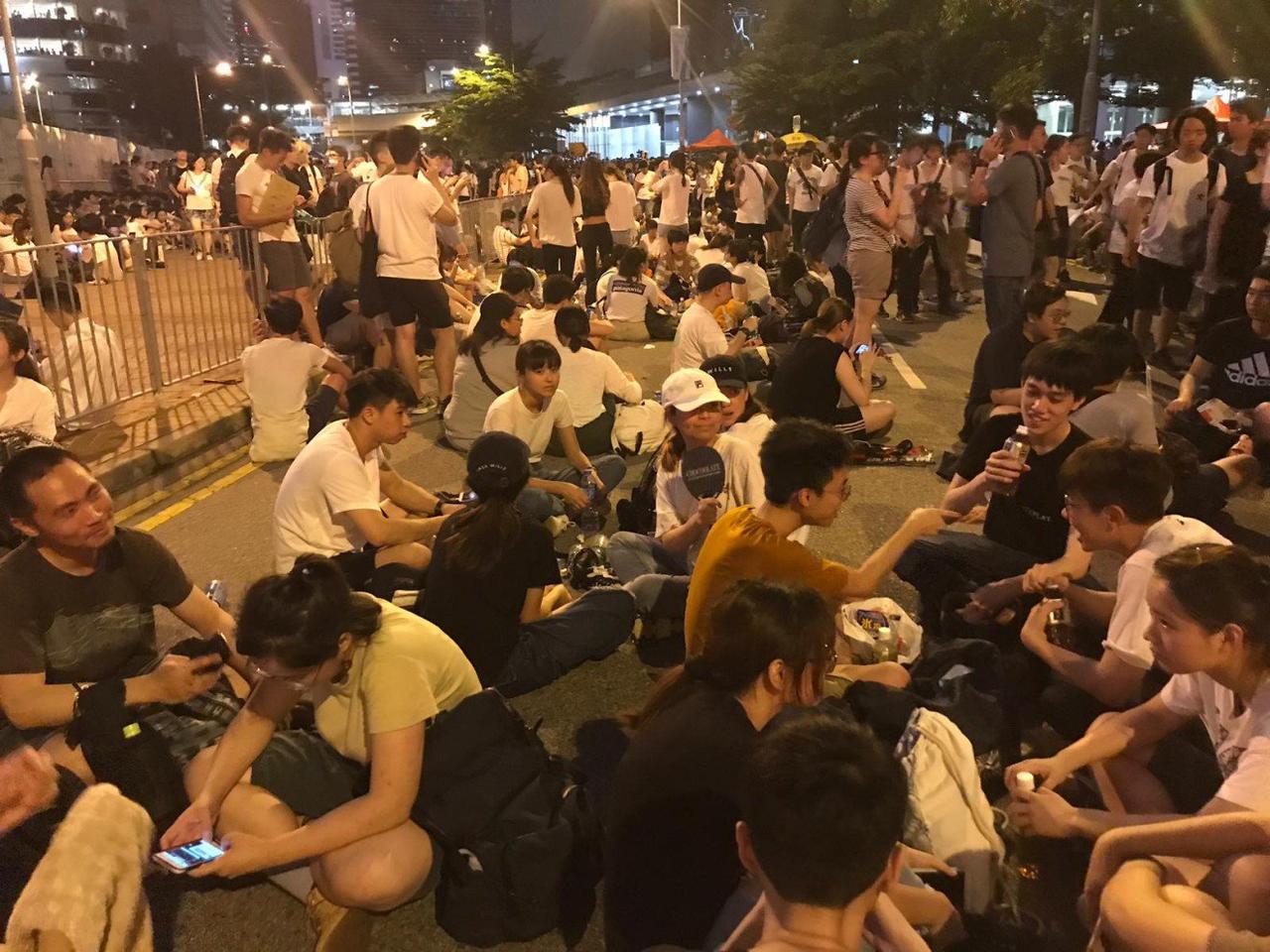
Crowds were so massive that some train stations across the city were temporarily closed and protesters had to line up in sweltering heat to enter a local park, chanting slogans to oppose the law and cheering each other on taking to the streets to express their discontent.
The proposed law, which would allow suspects to be extradited to mainland China for trial, has sparked anger in an unusually wide swath of the population, from teachers to lawyers and business leaders. The uniting fear is that the law, if passed, would expose citizens to the mainland’s more opaque legal system, where detainees could be subject to torture and other abuses of human rights. It would also remind the local population that HK is merely a Chinese colony now, and its own unique laws could be subverted overnight.
It is the latter that is the biggest concern for foreign business groups and diplomats, who have warned the proposal poses a threat to the rule of law that has helped Hong Kong prosper for decades as an international financial center, and which was guaranteed by China when it resumed sovereignty over the city from Britain in 1997. As the WSJ notes, opposition has grown even after the city’s leader, Carrie Lam watered down the bill slightly by removing offense categories liable to extradition from 46 to 37.
Lam’s government has said fears about the law are unfounded and stressed that only those suspected of the most serious crimes would be subject to extradition. The government says there will be safeguards against abuse and that the law won’t damage the city’s business environment or relate to offenses of a political nature. China’s Foreign Ministry didn’t immediately respond to a request for comment on the protests and their potential impact on the proposed extradition law. Phone and fax lines to China’s Hong Kong and Macau Affairs Office, which oversees Beijing’s policies to those territories, rang unanswered Sunday.
Anger over the extradition helped revive an opposition movement that dwindled after street protests in 2014 paralyzed parts of the city for 79 days, but ended without achieving their goal of obtaining more democracy. Meanwhile, Beijing’s influence over the city has grown since, while room for dissent has shrunk as the government has jailed protesters, declaring a pro-independence political party illegal and expelling a foreign journalist.
While the protests were mostly peaceful, there were occasional reports of scuffles between protesters and police, seven arrests and a fire in Central – but no major violence. Police gave the protesters a midnight deadline to disperse from government headquarters.
“I needed to let my voice be heard,” said Kitty Wong, a 38-year-old teacher who joined a protest for the first time. Gesturing to her two children, ages 8 and 9, she said: “We need to defend our home for the next generation.”
via ZeroHedge News http://bit.ly/2wLDVfv Tyler Durden
